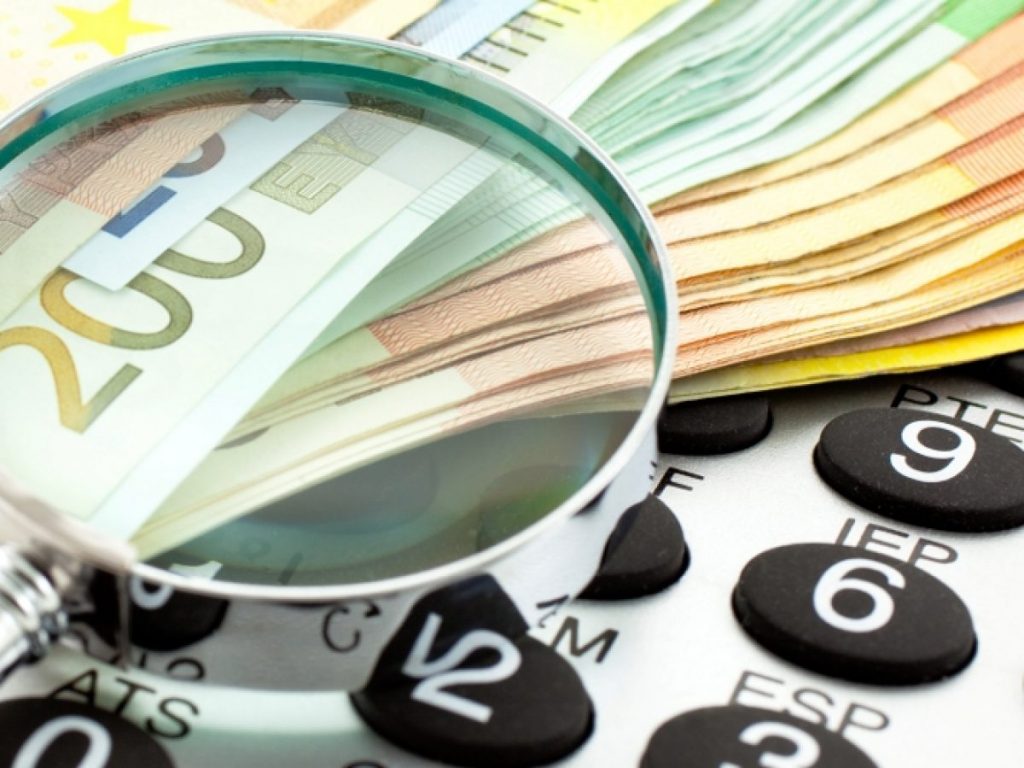
The regulations included in the tax bill that will be presented next Tuesday to the cabinet, by the Minister of National Economy and Finance Kostis Hatzidakis will be aimed at the portion of self-employed professionals who systematically show extremely low incomes, passing on the burdens to other consistent taxpayers.
Tax evasion: Zero income or losses reported by 1 in 3 Greek freelancers
This is reported by state news agency AMNA information regarding targeting, among other things, to deal with tax evasion, which Mr. Hatzidakis has already announced.
As sources from the Ministry of Finance point out, the need to intervene in the taxation system of the self-employed (and not in the tax rates, which do not change), arises from the data of this year’s tax returns (for the incomes of 2022), which are processed by Independent State Revenue Authority-AADE.
In particular, according to the processing of the latest tax returns of 733,396 self-employed, it appears that almost half a million self-employed persons declared for 2022 an income of up to 10,000 euros per year, while only 31,652 or 4.3% of the total declared more than 40,000 euros. Therefore, around seven out of ten self-employed people report incomes lower than the minimum wage, which is 780 euros per month (times 14 payments), or 10,920 euros per year. That is, as pointed out by the Ministry of the Interior, the employer declares a lower income than that of the employees he employs.
At the same time, as reported by the same information from state news agency AMNA, the new tax bill will include the announcements made by the prime minister to the TIF on dealing with tax evasion.
Specifically, 10 actions have been announced to combat tax evasion:
1. The completion of the interconnection of the cash registers with the POS, so that every transaction is recorded in the cash register and the data is transmitted in almost real time to the AADE.
2. Electronic invoices become mandatory within 2024, so that transactions can be cross-referenced and verified in real time.
3. Universal application of electronic books (myDATA). The income declared cannot be less than that resulting from the electronic information (myDATA, cash-POS), while only those that have been transmitted electronically to myDATA will be counted as expense invoices for tax purposes.
4. Extension of the obligation to have an electronic payment system (EFT/POS) to the remaining sectors of the retail market that currently do not have the obligation
5. Establishing the purchase and sale of real estate only with bank means of payment.
6. Activation of the digital consignment note, pilot from the beginning of 2024 and fully before the end of the same year.
7. Increase of the fine for the use of cash over 500 euros, to an amount twice the amount of the transaction.
8. Payment of most social and welfare benefits (child benefits, birth benefit, unemployment benefits) via debit cards.
9. Exclusion of smuggling offenders from cooperation with all fuel trading companies.
10. Interventions in the short-term rental sector with the aim of cross-referencing revenues, ensuring a level playing field in the tourism market, and further developing the sector.
Latest News

IMF: US Tariffs Shake Global Economy, Outlook Downbeat
IMF slashes global growth forecast to 2.8% as U.S. tariffs create uncertainty and ‘negative supply shock

First Step Towards New Audiovisual Industry Hub in Drama
The project is set to contribute to the further development of Greece’s film industry and establish Drama as an audiovisual hub in the region

Airbnb Greece – Initial CoS Ruling Deems Tax Circular Unlawful
The case reached the Council of State following annulment applications filed by the Panhellenic Federation of Property Owners (POMIDA)

Mitsotakis Unveils €1 Billion Plan for Housing, Pensioners, Public investments
Greek Prime Minister Kyriakos Mitsotakis has announced a new set of economic support measures, worth 1 billion euros, aiming to provide financial relief to citizens.

Alter Ego Ventures Invests in Pioneering Gaming Company ‘Couch Heroes’
Alter Ego Ventures' participation in the share capital of Couch Heroes marks yet another investment by the Alter Ego Media Group in innovative companies with a focus on technology.

Corruption Still Plagues Greece’s Driving Tests
While traffic accidents continue to claim lives on Greek roads daily, irregularities and under-the-table dealings in the training and testing of new drivers remain disturbingly widespread

Pope Francis Died of Stroke and Heart Failure Vatican Confirms
As news of the official cause of death spread, tributes poured in from across the globe. The 1.4 billion-member Catholic Church is united in grief, remembering a pope who championed inclusion, justice, and compassion

Increase in Both Museum Visits, Revenues for 2024
As expected, the Acropolis was the top archeological site in the country, followed by Sounion, Mycenae, the ancient theater of Epidaurus, and Vergina in northern Greece

Where Greece’s Tourists Come From: A Look at 2025’s Top Visitor Markets
The United Kingdom continues to hold the top spot as the largest source of incoming tourism, with 5.6 million seats booked for Greece this summer — up 2.2% from last year. This accounts for 20% of all international air traffic to Greece

Pope Francis: A Pontiff Who Reshaped the Papacy and Sparked a Global Conversation
His first words from the balcony of St. Peter’s Basilica—“Brothers and sisters, good evening”—set the tone for a pontificate that would challenge norms, favor mercy over dogma, and bring the papacy closer to the people.












![Πλημμύρες: Σημειώθηκαν σε επίπεδα ρεκόρ στην Ευρώπη το 2024 [γράφημα]](https://www.ot.gr/wp-content/uploads/2025/04/FLOOD_HUNGRY-90x90.jpg)



![Ξενοδοχεία: Μεγάλο το ενδιαφέρον για επενδύσεις στην Ελλάδα – Η θέση της Αθήνας [γραφήματα]](https://www.ot.gr/wp-content/uploads/2025/03/Athens-hotels-90x90.jpg)








![ΔΝΤ: Καμπανάκι για δημόσιο χρέος από δασμούς και αμυντικές δαπάνες [γράφημα]](https://www.ot.gr/wp-content/uploads/2024/05/30859482_Sharone-perlstein-microfinanace-debt-800x500_c-600x375-1-1.jpg)















 Αριθμός Πιστοποίησης
Αριθμός Πιστοποίησης